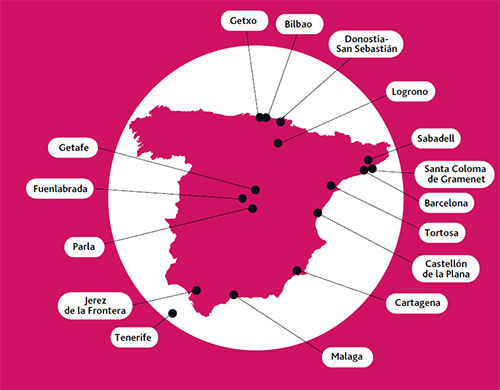Barakaldo, Spain - Intercultural City

Barakaldo is composed of a mixture of cultures. At the end of the 19th century and the beginning of the 20th century, the municipality grew due to processes of migration and industrialisation until it eventually became the regional capital of the Left Bank of Bizkaia. Today it is the fourth most populated city in the Basque Country and the second in the province, with 102,242 inhabitants (data from the municipal census, February 2020).
The industrial past turned the city into a welcoming, dynamic and lively territory, made up of neighbours from different parts of Spain. Like the neighbouring cities, in the 90s Barakaldo was subject to an unprecedented industrial conversion, transforming the territory into a modern and accessible city of services.
In this framework of exciting social and urban transformation, the city has managed to protect its surrounding natural resources, without forgetting the traces of its more recent steelmaking past.
Barakaldo has consolidated itself as a place of reception and settlement for international migration, which represents 10.8% of the total population of the municipality (February 2020). Without doubts, the arrival of foreigners constitutes today one of the most relevant factors of change in Barakaldo. This process of change implies challenges in the structure and priorities of the city. Moreover, it also involves learning to manage possible conflicts and taking advantage of the opportunities of the new diversity of the municipality.
In this sense, it is necessary to highlight the fact that Barakaldo was already diverse before the migratory phenomenon, both in terms of cultural expressions, social classes and ways of life. Therefore, the migration phenomenon only increases the mosaic of social and cultural diversity in the municipality. Barakaldo City Council was a pioneer in joining the Basque Government's Municipal Reception Network. Likewise, it created a Municipal Immigration Service in 2004 which, since then, has led the reception and social integration of migrants in the municipality as well as the promotion of intercultural coexistence.
- What is the ICC Index?
- Barakaldo Results

Amaia DEL CAMPO





